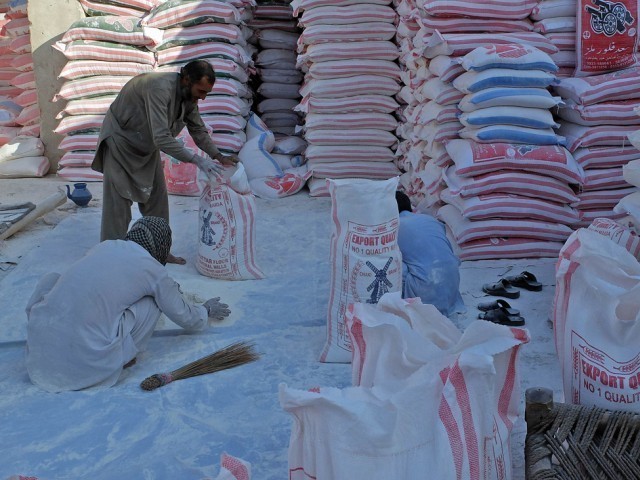
As severity of cold intensified this winter season, the demand for flour in Punjab also seems to be on the rise.
The peak in demand can be witnessed primarily in the semi-urban and rural areas of the province. In wake of the situation, the flour mills have intimated the Punjab Food Department that there is an urgent need to increase the daily quota to meet the public demand. The provincial food department has issued a total of 2,400 show-cause notices to the flour mills after receiving complaints regarding violations. The department has been monitoring the flour mills in the province to ensure abundant availability of flour in the open market.
During the operation, the authorities took action against more than 700 flour mills involved in violations such as wheat flour smuggling, low wheat threshing and low flour supply. With the registration of five FIRs, the officials cancelled food grain licenses of nine mills, while suspending it for 28 others. The province also gathered Rs170 million in fines from 570 flour mills. Moreover, the centre is importing 1.135 million tonnes of wheat to alleviate the crisis in Punjab. aAround 590,000 tonnes of wheat has already reached Karachi, while two days ago, two ships carrying 120,000 tonnes of wheat reached the port city. The unloading of wheat from the metropolis will start in the next few days.
According to market sources, despite the import of millions of tonnes of wheat by the public and private sectors, there is no “abundance” of wheat in the government warehouses. Also owing to the long schedule of arrival of wheat, the Punjab Food Department is cautious and reluctant to increase the quantity of daily quota of mills. The department has informed Prime Minister Imran Khan and the federal ministries in writing that it is supplying 25,000 tonnes of wheat to the flour mills daily. However, according to the official figures, the department is releasing around 22,500 tonnes.
Read Punjab can turn 3.8m more acres of land fertile
It was learnt that the advance quota reserved for a public holiday was also not provided under the “savings campaign” on December 25. Following which, the field staff of the department had to make special efforts to maintain the availability of flour for the next several days. With the onset of winter in January and February, people in semi-urban and rural areas also start using flour in bags, raising the need.
The flour mills had suggested that if the department, while staying within the approved daily limit of 25,000 tonnes, increases its existing delivery the availability of flour in the market would remain stable. The Punjab Food Department is closely monitoring the supply of wheat and flour from the government to the flour mills, taking effective action against the flour mills involved in any act of violation. Most of the operations have been carried out against flour mills of Rawalpindi and Lahore divisions.
Speaking to The Express Tribune, Pakistan Flour Mills Association Chairman Asim Raza said that in the last season, the flour mills were not permitted to buy wheat from markets, which made the mills rely solely on the government quota and led to the recent crisis. “We are grinding all the wheat that the government is providing (to the mills). In the open market, wheat from private sources is being sold at a price of Rs2,300/40kg. We cannot buy wheat at this rate and then sell flour at Rs860, which is why the government should take stock of the situation.”


1722586547-0/Untitled-design-(73)1722586547-0-165x106.webp)


1732326457-0/prime-(1)1732326457-0-165x106.webp)
1732012115-0/Untitled-design-(14)1732012115-0-270x192.webp)











COMMENTS
Comments are moderated and generally will be posted if they are on-topic and not abusive.
For more information, please see our Comments FAQ